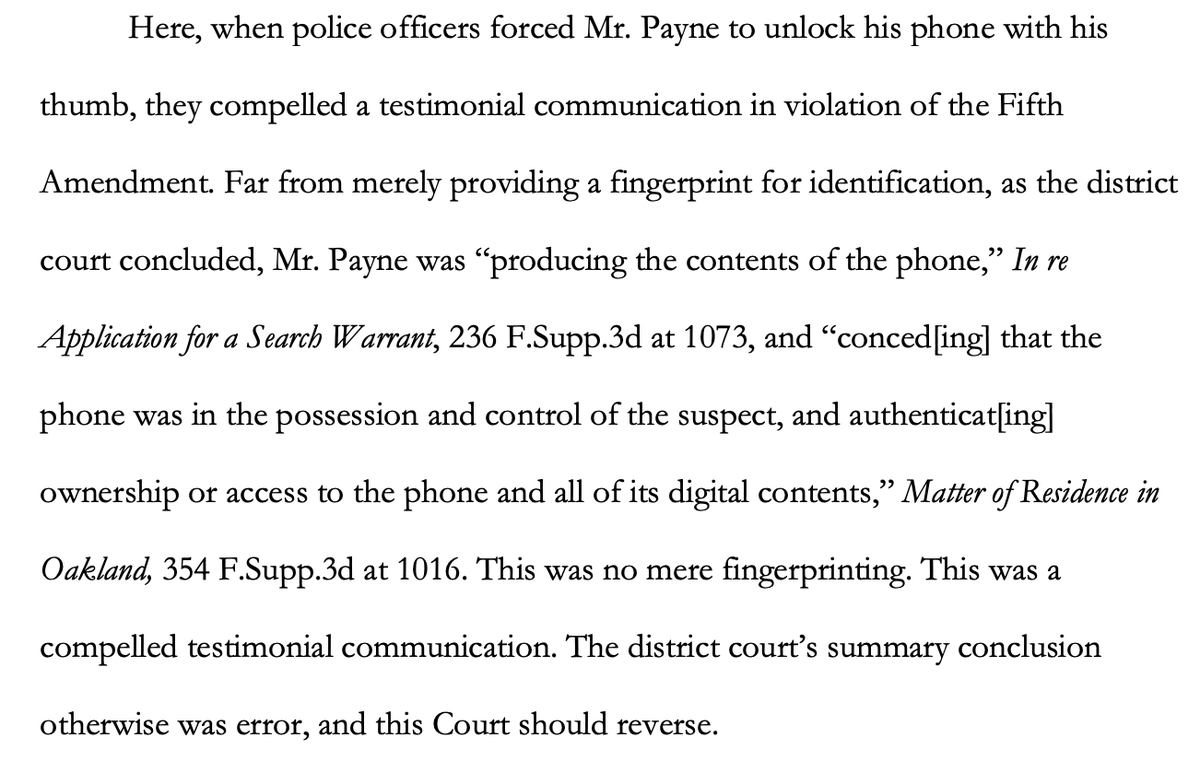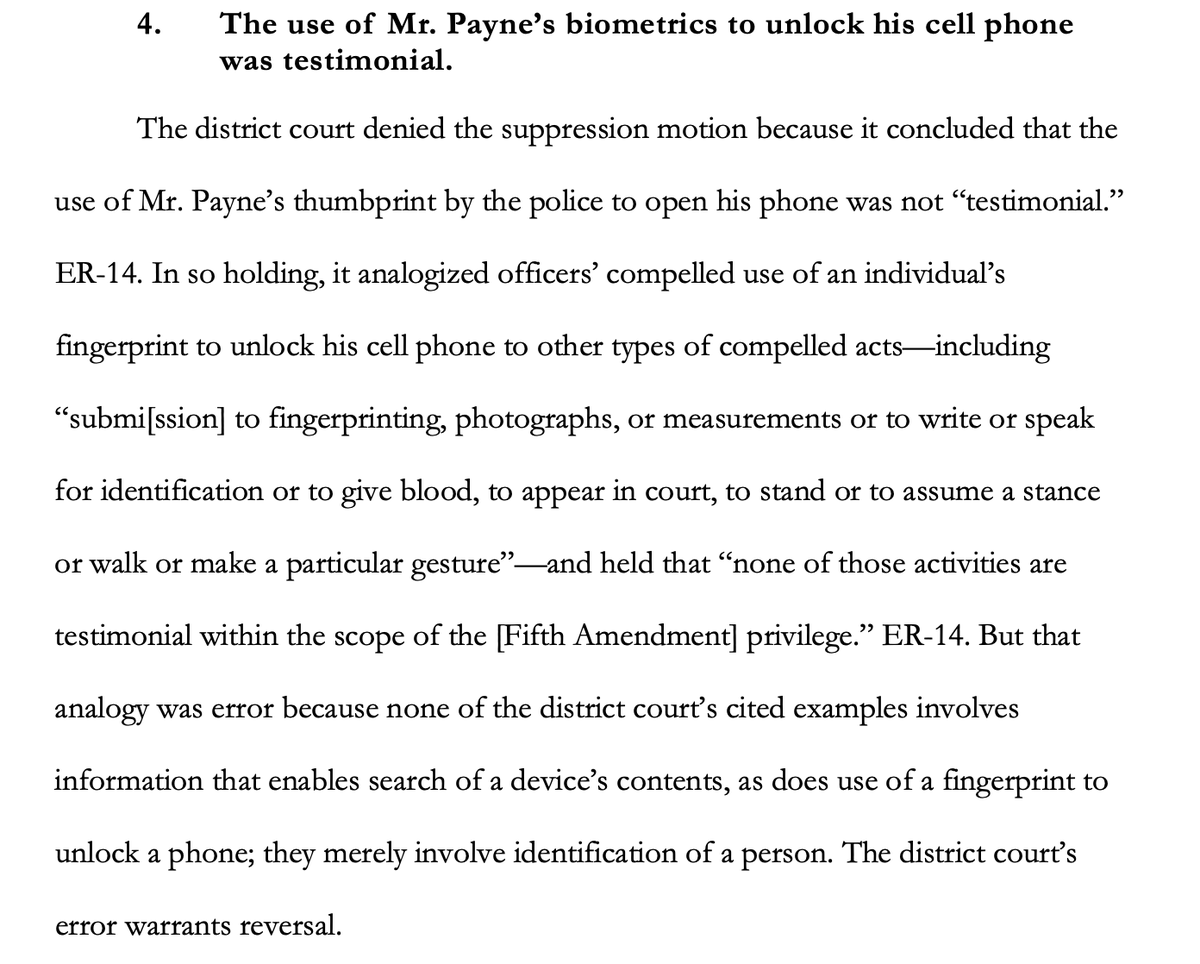Recently filed CA9 appeal asks court to answer whether compelled biometric access is "testimonial" and therefore triggers the 5th Amendment privilege.
US v. Payne, 22-50262.
This one has a clear answer: No.
Thread below.
drive.google.com/file/d/1XU4rER… #N
US v. Payne, 22-50262.
This one has a clear answer: No.
Thread below.
drive.google.com/file/d/1XU4rER… #N

In the case, officers took Payne's hand, "grabbed [his] thumb and unlocked the phone." I read that to mean that they took his thumb and placed in on the biometric reader. Later, the officer asked/ordered him to give the code to not have to use the thumb every time. 

As I read the brief, the only 5A issue is whether placing Payne's thumb on the reader was testimonial. 

As I have written many times before, though, it clearly isn't. It has evidentiary value, sure, in that it provides access to the phone. But skin on your thumb isn't the mind; it doesn't testify. The ridges on your skin don't have thoughts to share. reason.com/volokh/2019/01… 



It could be a different case if the government tells the person to pick the part of their body they use to unlock the device, and to do it. See the post below. But that's not implicated where the government picks a thumb and puts it on the reader.
washingtonpost.com/news/volokh-co…
washingtonpost.com/news/volokh-co…
• • •
Missing some Tweet in this thread? You can try to
force a refresh

 Read on Twitter
Read on Twitter




